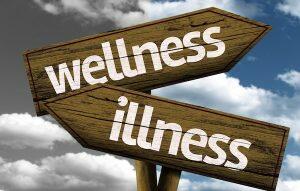 Can poor oral health effect our overall health? Our mothers always told us to brush our teeth and floss but did we always follow through? Probably not. As adults we also may not be as dedicated to caring for our teeth and gums as we should be. Now science is providing more and more evidence why this behavior may be doing us a lot of harm.
Can poor oral health effect our overall health? Our mothers always told us to brush our teeth and floss but did we always follow through? Probably not. As adults we also may not be as dedicated to caring for our teeth and gums as we should be. Now science is providing more and more evidence why this behavior may be doing us a lot of harm.
We have known for a long time that oral bacteria contribute to tooth decay, and now the bacteria specifically related to gum disease have been linked to various health conditions. A few of these conditions are listed below.
Kidney Disease
Professor Iain Chapple, University of Birmingham, explains that oral health is not just about teeth. Bacteria enter the mouth and find access to the bloodstream through the gums. Untreated gum disease presents a high risk to the body. Praveen Sharma co-authored a study that showed a connection between kidney disease and periodontal disease (gum disease). He believes that oral health plays a significant part in improving patient outcomes, and he is studying further to determine whether treating gum disease and improving oral health will improve overall health in patients with kidney disease.
Stroke
Robert P. Freidland, MD, University of Louisville School of Medicine states, “…work in our labs has shown that oral bacteria are involved in several kinds of stroke, including brain hemorrhages and strokes that lead to dementia.”
Breast Cancer
Recent research found that postmenopausal women with periodontal disease are more likely to develop breast cancer than those who have healthy gums. University at Buffalo’s School of Public Health and Health Professions conducted the study.
Esophageal Cancer
Researchers at the University of Louisville School of Dentistry identified P. gingivalis as a possible biomarker associated with esophageal cancer. If a causal relationship can be established, screenings for P. gingivalis in dental plaque may allow earlier diagnosis of the disease and lead to strategies to prevent the disease’s progression.
As noted, researchers are working to determine whether or not diagnosis of gum disease can serve as an early warning of other problems and if treating oral health conditions can reduce the risk of these serious health conditions. Until then we would all be wise to monitor our oral health and maintain routine dental visits to identify problems before they become too serious.
